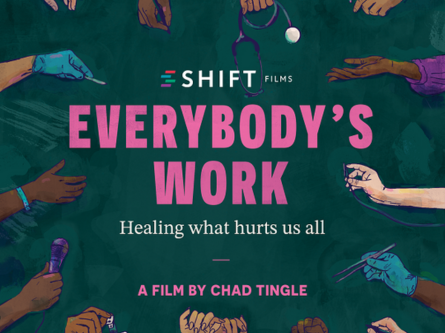Creating a culture of gratitude – and compassion – in health care is a win-win proposition for our patients, co-workers, students and the greater community.
The science suggests that grateful patients and colleagues do more than provide warm fuzzy feelings to everyone around them. Gratitude in health care environments actually benefits peoples’ well-being and even the care patients receive, as well as teamwork and staff relationships. A study published in 2019 found that expressions of gratitude served as a source of support for providers in difficult times, improved mood, and provided encouragement to continue and rewards for their effort. It also increased professional satisfaction.
Grateful patients have a positive impact on physicians and providers. Dr. Hammer wrote the book, “GAIN without Pain; The Happiness Handbook for Physicians”, noting a human tendency toward a negativity bias, and the role that gratitude in health care can play in neutralizing those feelings of discomfort and negative outcomes.
Not only does gratitude have a positive impact on physicians and nurses themselves, but it also impacts the care patients receive. Another study published in 2019 found that gratitude from patients significantly enhanced medical team performance.
So, whether you work with patients, providers, staff, students or members of our community, the power of gratitude – and compassion – can deeply resonate with everyone you encounter. Stephen Trzeciak, chair of medicine at Cooper University Health Care, wrote the book,” “Compassionomics: The Revolutionary Scientific Evidence that Caring Makes a Difference”. A few of the key research insights in that work, which focuses on health care, include:
- Compassion has vast benefits for patients across a wide variety of conditions.
- Missed opportunities for compassion can have devastating health effects.
- Compassion can help reverse the cost crisis in health care.
- Compassion can be an antidote for burnout among health care providers.
- Forty seconds of compassion can save a life.
As you can see, gratitude and compassion are not soft, mushy concepts, and they’re not touchy-feely abstractions. They represent scientific facts, and they benefit everyone in the workplace, from patient to co-worker.
Finally, I’m proud that our Office of Diversity, Equity and Inclusion offers many resources, studies and data that touch on the themes of well-being and our plans for creating an inclusive working, learning, and living environments for all members of our community.
Let’s embrace this mindset – thank you, and happy holidays!—David Lubarsky, M.D., MBA, Vice Chancellor of Human Health Sciences and Chief Executive Officer, UC Davis Health






